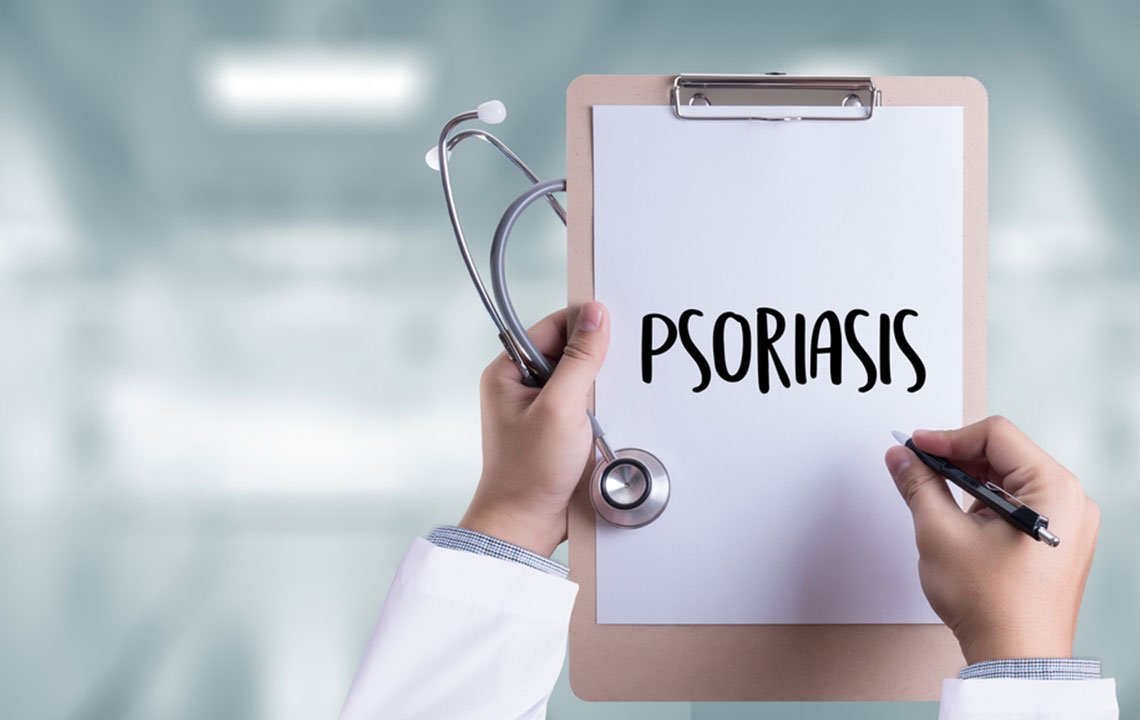Here are Some Treatment Options for Psoriasis
Psoriasis is a chronic condition that is the result of an increase in the lifecycle of skin cells. The growth of skin cells is much faster than normal when you suffer from psoriasis, causing an irritable feeling. Due to the multiplying of skin cells on your body, you will feel itchy which might even be painful at times.
The rapid growth of the skin cells is mainly due to the chemicals released by white blood cells and primarily affects the scalp, elbows and knees.

- Plaque psoriasis: Is the simplest form of psoriasis that causes red, scratchy, and irritable feelings on parts of the body, including the soft tissue in your mouth. This can be painful at times depending on the spread of psoriasis and your body type.
- Nail psoriasis: As the name states, this form of psoriasis affects the hand and thumb nails. It causes abnormal growth of nails due to an increase in nail skin cells, leading to crumbling of the nail.
- Inverse psoriasis: This may occur due to a fungal infection and generally gets worse with sweating and friction. Inverse psoriasis mostly affects the area under the breast and groin causing inflamed skin and smooth red patches.
- Pustular psoriasis: This is a more uncommon form of psoriasis where there is a continuous spread of patches on your back, hands, or legs.
- Erythrodermic psoriasis: This is the most uncommon form of psoriasis where your entire body is covered with red patches, giving you an itchy and irritable feeling.
It becomes important to understand the cause of psoriasis before moving towards the treatment of psoriasis. Research shows that psoriasis is primarily caused by problems of the immune system. This can be a result of trauma or stress. Other triggers are smoking, infections, injuries, and certain medications that do not suit your body.
When the immune system suffers dysfunction, the generation of T and white blood cells is affected. These blood cells protect the body against any bacteria or viruses. White and T blood cells respond to any foreign substance entering our body. Once you are affected by psoriasis, the T blood cells attack the healthy skin instead of the infection.
Treatment for Psoriasis:
Sunlight: Sunlight is regarded as an excellent treatment for psoriasis. Exposure to UV rays reduces itching and will decrease the inflammation of the skin. However, over-exposure to sunlight will have a range of other harmful effects on the skin.
Anthralin: Anthralin is a cream that is prescribed for psoriasis since it has Vitamin D. Vitamin D helps in slowing the growth of infected skin. Anthralin reduces the scaling but can irritate the skin and is usually washed away soon after as it stains everything it touches.
Moisturizers: Moisturizers do not solve psoriasis but help make the skin less dry and itchy. These are used a little more than lotions to keep the skin healthy.
Retinoids: These are drugs used in severe cases of psoriasis and contain vitamin A. Retinoids have other side effects like hair loss and lip inflammation and are not prescribed to women during pregnancy.
Aloe vera: Aloe vera is the slowest form of treatment for psoriasis and can be made by directly extracting it from leaves of the aloe vera plant. However, you need to apply it everyday to see an improvement in your skin. This helps reduce inflammation and redness of the skin.
Avoid fragrances: You must keep a close watch on the soaps and shampoos you use as they can contain chemicals that do not suit your skin, and in turn worsen the symptoms of psoriasis.
Warm baths: A warm shower helps symptoms of psoriasis and reduces burning and itching sensations. Studies have found that warm water has a soothing effect compared to cold or hot water.
Turmeric: Doctors recommend turmeric as a simple home remedy to psoriasis as turmeric has healing properties, and can heal a psoriasis flare-up. However, it has to used in a specific way depending on the severity and cause of your psoriasis.
Alcohol and smoking: Habits such as drinking and smoking should be avoided if you suffer from psoriasis. Research has found that this increases the risk of psoriasis by almost double, and also affects women more than the men. As far as treatment for psoriasis, a healthy lifestyle and exercise are essential.
Treatment for psoriasis is generally taken after consulting a doctor.. However the procedure starts with self remedies like aloe vera leaves, and even light therapy like sunlight exposure. If both of these do not help, you will be recommended medication like retinoids. Research continues into treatments that can be given without any side-effects. Psoriasis is inherited and it becomes difficult to suggest a preventive measure other than a healthy lifestyle and clean surroundings.